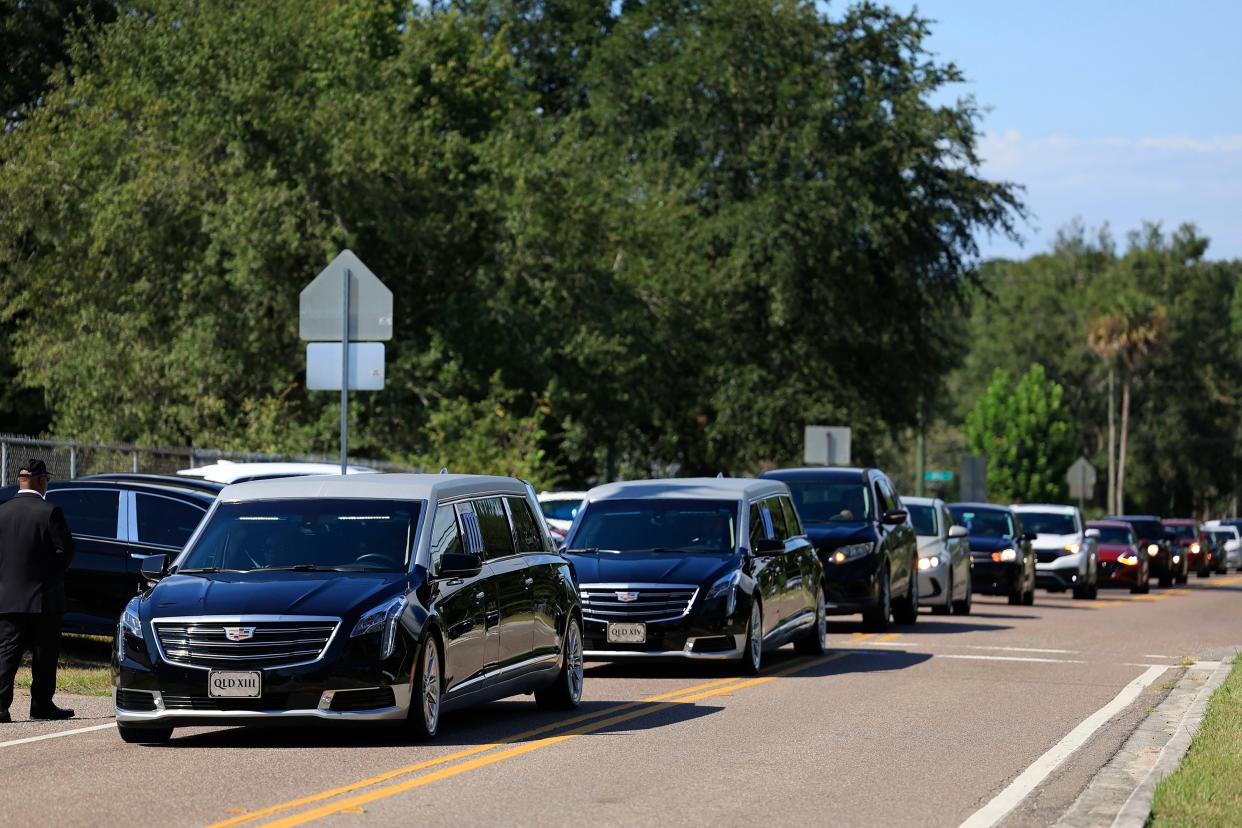Local health leaders: Healing Jacksonville community after trauma of race-related violence

As we continue to learn more about what happened at a neighborhood store in Jacksonville on Aug. 26, what is clear is that a racially motivated hate crime was committed — people lost their lives for nothing other than the color of their skin and being who they are.
As Jacksonville’s health leaders, we are committed to extinguishing the spread of hate. We are working with other local leaders to offer our mental health expertise and organizational capabilities to help heal our community from the trauma that has been inflicted.
Individuals, families and communities who have experienced race-related violence often speak about the need to heal or recover from such events. This is because when viewed through the lens of our mental and emotional health, a hate crime is a severe traumatic event that can have a long-lasting psychological impact on individuals and communities.
Experience and studies confirm that in the short term, anyone who has gone through a traumatic event like this, whether directly or indirectly, can feel a wide range of reactions and emotions of fear, sadness and anger. It’s also important to know that these feelings can surface even after some time has passed.
Letters: Gov. DeSantis is just politicizing COVID vaccines, not protecting public health
There are recognizable signs, including: hypervigilance, where sensitivity to loud sounds or even sudden movements by others can cause panic; sleep disturbance; difficulty controlling emotions; thoughts that tend to dwell on the traumatic event and worried anticipation that it could happen again.
These reactions are normal and can be reduced over time, especially if mental health support is available. We all deserve to feel confident in our security and safety in the environments where we live and work.
Right now, it’s essential to know that it’s OK to not be OK. It can be difficult to ask for help or even acknowledge that you need help, but over time ignoring the signs of distress can worsen mental and physical health.
For some, self-help is an important first step for healing, whether that’s going for a walk, practicing prayer or meditation and getting extra sleep. If you don’t feel comfortable talking to a medical professional, consider seeking out a trusted mentor in your community, like a faith leader or community advocate.
Florida Blue exec: New partnerships help improve access to mental health services in Jacksonville
Mental well-being is vital to a thriving community. As health leaders, we recognize the mental health impacts of this senseless act of violence and extend our support to the entire community. We are your neighbors. We see you, we are here for you and we must stand together. Please reach out to any of the resources listed below if you need help.
The following community resources are among those available for anyone seeking mental health support:
Florida Blue, in partnership with Lucet, offers a bilingual 24/7 hotline support at no extra cost for anyone in Florida. Call (833) 848-1762 for immediate emotional support if you’re experiencing feelings of stress, anxiety, trauma or grief. Callers may also receive referrals to community resources to help them with emergency services.
Visit lsfhealthsystems.org or call the 24/7 Access to Care Line at (877) 229-9098 for help finding community resources.
Contact Northwest Behavioral Health Services at nwbh.net or call the Trauma Crisis Hotline & Mobile Specialists 24/7 at (833)-9TRAUMA (987-2862).
Call the Suicide & Crisis Lifeline by dialing or texting 9-8-8 to be connected to a team of crisis specialists 24/7 at no cost.
United Way of Northeast Florida offers resources at unitedwaynefl.org or call 2-1-1 to contact a United Way call center specialist 24/7 at no cost.
We also thank the many community organizations and leaders who are united in helping our community start to heal and partnering to create lasting solutions.
Terrie Andrews, Ph.D., vice president of behavioral health, Baptist Health; Naakesh “Nick” Dewan, M.D., vice president of behavioral health, Florida Blue; Christine Cauffield, Psy.D., CEO, LSF Health Systems, Inc.; William V. Bobo, M.D., M.P.H., professor of psychiatry and chair, Department of Psychiatry & Psychology, Mayo Clinic; and Steven P. Cuffe, M.D., professor and chair, Department of Psychiatry, University of Florida, College of Medicine – Jacksonville
This guest column is the opinion of the author and does not necessarily represent the views of the Times-Union. We welcome a diversity of opinions.
This article originally appeared on Florida Times-Union: Recent hate crime a severe traumatic event, impact can last years

